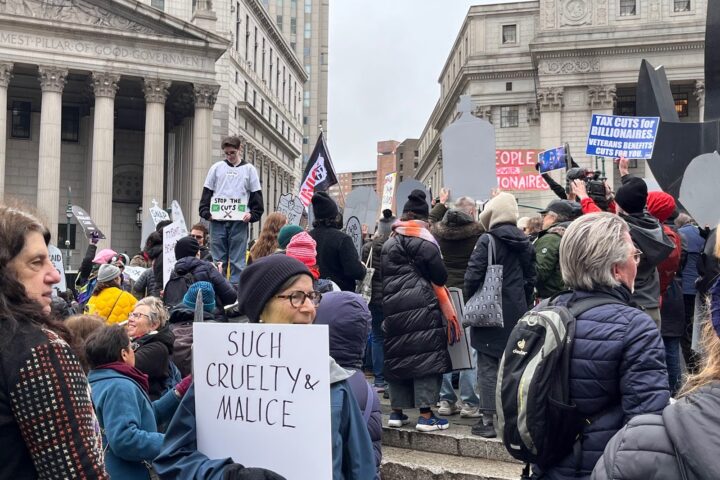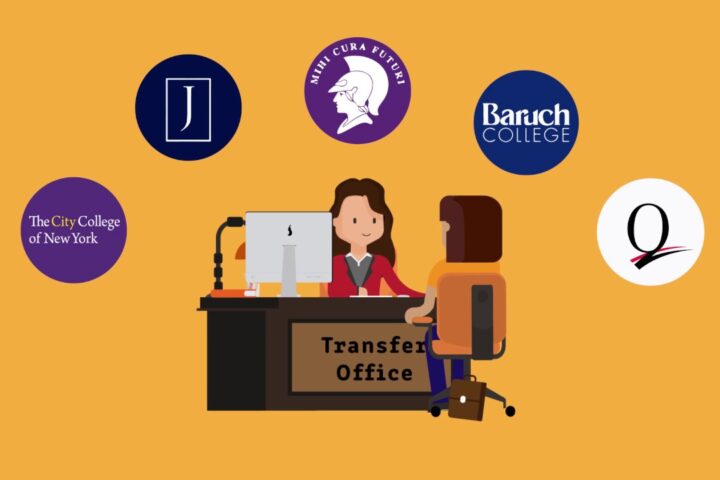A recent survey conducted by Gallup-Purdue University found only half of recent graduates strongly agree with their college education “was worth the cost.”
Gallup-Purdue University, as part of a national survey, selected 30,000 students from both public and private colleges. The goal is to help college professors observe and understand the their overall teaching ability by tracking student experiences, areas where the college can improve and well-being after graduation.
Interestingly, the statement about the worth of a college degree was added for the 2015 edition of the survey.
The percentage of college graduates who disagreed with the statement surprised Brandon Busteed, executive director of Gallup Education and Workforce Development.
“Given the value we as a country place on education, you would expect that we would have a much higher percentage who say they definitely agree with that statement,” Busteed said. “That was a real shocker to me.”
Student who graduated between the years 2006 to 2015 are less likely to find value in their college education. Only 38 percent of graduates from this time period strongly agree their education was worth the cost.
Busteed believed the low percentage is because of the financial crisis and unstable job market since these graduates were less likely to find jobs in their field immediately after college.
In fact, based on an Economic Policy Institute report titled “The Class of 2015,” unemployment among college graduates, which they estimated as 21.3 percent, remains high because “the Great Recession and its aftermath is the longest, most severe period of economic weakness in more than seven decades.” The authors estimated the unemployment rate for those under 25 to be 21.3 percent.
Nonetheless, the survey found an inverse correlation between the growth of a graduate’s student debt and their personal value of education. Only 33 percent of graduates with debt strongly agreed college was worth it.
The percentage was even lower for graduates with $50,000 or more in student loans. Only 18 percent believed their education was worth anything.
In contrast, a graduate’s chance of answering strongly agree almost doubled in colleges where students are well connected to the school’s faculty.
Graduates involved in extracurricular activities or internships were likely to say they found value in their education. Moreover, alumni with a strong connection to faculty and those participated in mentorship programs were more likely to worth in their college career.
Eugene Alamag, a senior, agreed college is not always worth it. Furthermore, he advocated students consider other career and education options.
“In a trade job, you can learn a trade through apprenticeship and enter the workforce in a short period. The cost of education and time invested adds up, and you’re not guaranteed a job. I don’t think it’s worth the effort,” Alamag said.
A recent survey conducted by Gallup-Purdue University found only half of recent graduates strongly agree with their college education “was worth the cost.”
Gallup-Purdue University, as part of a national survey, selected 30,000 students from both public and private colleges. The goal is to help college professors observe and understand the their overall teaching ability by tracking student experiences, areas where the college can improve and well-being after graduation.
Interestingly, the statement about the worth of a college degree was added for the 2015 edition of the survey.
The percentage of college graduates who disagreed with the statement surprised Brandon Busteed, executive director of Gallup Education and Workforce Development.
“Given the value we as a country place on education, you would expect that we would have a much higher percentage who say they definitely agree with that statement,” Busteed said. “That was a real shocker to me.”
Student who graduated between the years 2006 to 2015 are less likely to find value in their college education. Only 38 percent of graduates from this time period strongly agree their education was worth the cost.
Busteed believed the low percentage is because of the financial crisis and unstable job market since these graduates were less likely to find jobs in their field immediately after college.
In fact, based on an Economic Policy Institute report titled “The Class of 2015,” unemployment among college graduates, which they estimated as 21.3 percent, remains high because “the Great Recession and its aftermath is the longest, most severe period of economic weakness in more than seven decades.” The authors estimated the unemployment rate for those under 25 to be 21.3 percent.
Nonetheless, the survey found an inverse correlation between the growth of a graduate’s student debt and their personal value of education. Only 33 percent of graduates with debt strongly agreed college was worth it.
The percentage was even lower for graduates with $50,000 or more in student loans. Only 18 percent believed their education was worth anything.
In contrast, a graduate’s chance of answering strongly agree almost doubled in colleges where students are well connected to the school’s faculty.
Graduates involved in extracurricular activities or internships were likely to say they found value in their education. Moreover, alumni with a strong connection to faculty and those participated in mentorship programs were more likely to worth in their college career.
Eugene Alamag, a senior, agreed college is not always worth it. Furthermore, he advocated students consider other career and education options.
“In a trade job, you can learn a trade through apprenticeship and enter the workforce in a short period. The cost of education and time invested adds up, and you’re not guaranteed a job. I don’t think it’s worth the effort,” Alamag said.













